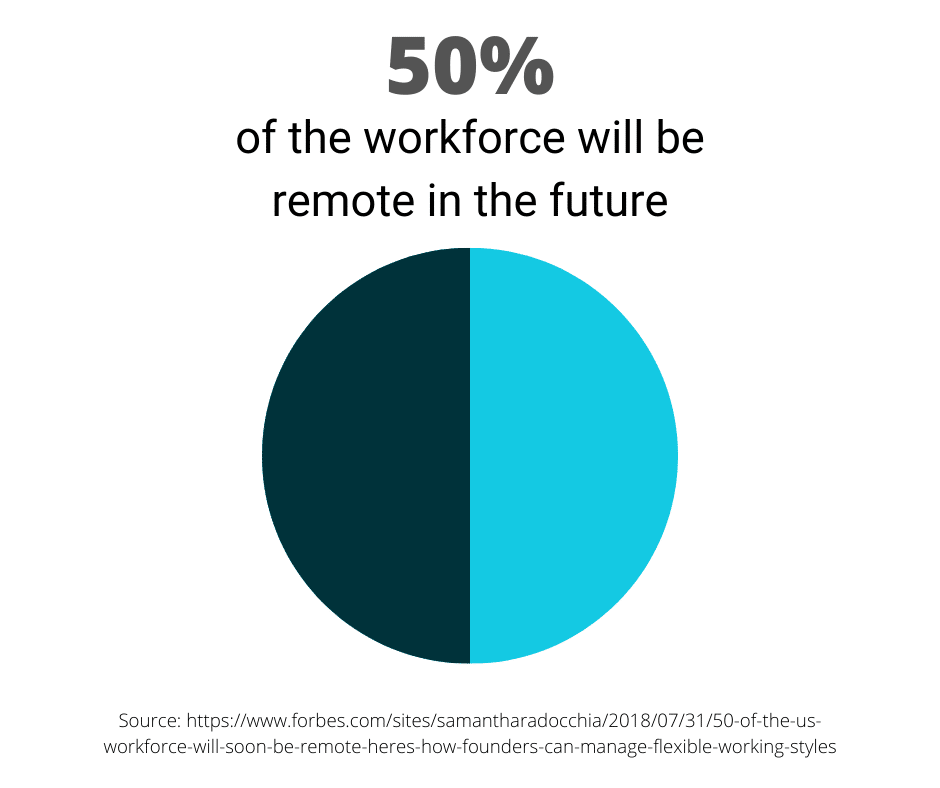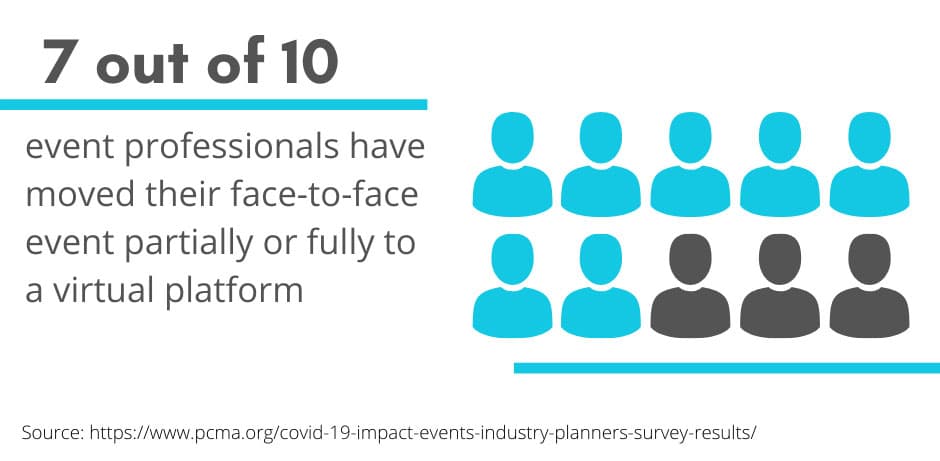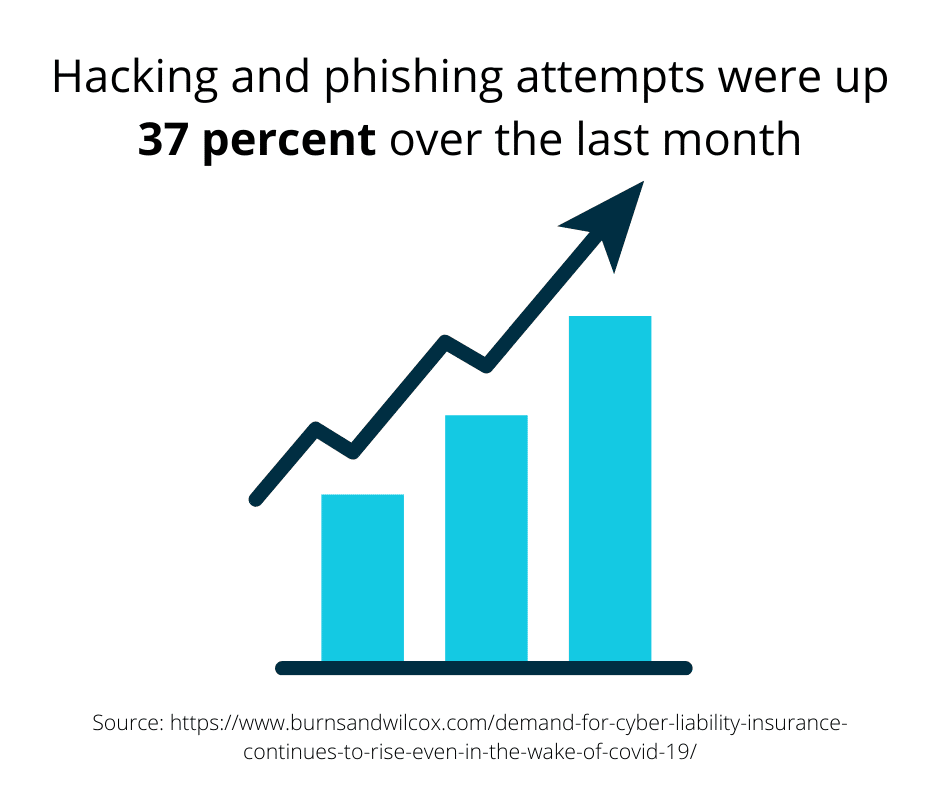Assessing current solutions and implementing new software will take a lot of manpower and will initially have an impact on the firm’s short-term profitability, but there will be a worthwhile return on this investment.
The legal industry has learned so much from recent events.
1. Employees can work remotely. Prior to the pandemic, approximately 30% of the workforce worked remotely. Now, in the midst of the pandemic, approximately 85% of the workforce is working offsite. Going forward, it is estimated that 50% of the workforce will continue to work remotely.
Due to this increase, it has become more important to ensure that remote workers are compliant with the firm’s technological policies. To this end, each firm should update their technology policy to include:
- Remote bandwidth speed requirements for all employees.
- Security guidelines for personal internet passwords. (Most firms are requiring dual factor authentication.)
- An approval process for personal devices and rules that prohibits the device(s) from being shared with family or friends.
- The restriction of BYOD (Bring Your Own Device) equipment in instances where all equipment must be firm-supplied or firm-approved.
- Participation in regular cybersecurity training.
- Many clients have technology requirements. All employees must be aware of and comply with these requirements, as well. It is imperative that employees do not improperly share any confidential information.
- A technical contact to whom employees can report technical issues and concerns and from whom they can receive technical help.
- Guidelines to your firm’s technology policy relating to remote court appearances and other types of virtual activities. Proper protocols with respect to online meetings such as Zoom. Many meetings are recorded, so any misconduct will be documented.
All employees should be required to read and sign the firm’s remote technology policy. This document must be updated on a regular basis and discussed with all employees and owners each time it is altered.
Firm leadership should continuously encourage employees to report anything they believe to be an issue, even if it turns out to be the employee’s mistake.
2. Firms can become more efficient, thereby needing fewer employees. While working remotely, many employees are becoming more technically advanced.
As teams return to the office, firm leadership should consider the following:
- By properly utilizing software applications, firms should become more efficient, thereby needing less human interaction.
- As more people are working remotely, more efficient firms will prioritize workflow and monitor it more frequently.
- Firms should continue to educate employees about the nuances of software applications.
- If a company ignores this trend, it will become less profitable than its competitors.
3. By working remotely, firms can save money on rent. As leases expire, tenants will probably require less space.
Firms should reevaluate space requirements for all locations, keeping in mind that it is expected that 50% of the workforce will probably continue to work remotely, and carefully consider the following:
- Some employees may need to work onsite only some of the time.
- It may make sense for employees to share offices and/or cubicles, assuming routine cleaning procedures are in place.
- More meetings will most likely occur electronically so that fewer in-person meetings will be necessary. This means that less conference room space will likely be required for meetings. Conversely, the updating of meeting applications may become necessary.
- With the reduction of onsite staff, some office locations may no longer be necessary.
4. Expect costs to shift from employee and rent to technology and software applications. Firms should reevaluate existing technology. Many firms will want to move to the cloud and employ integrated document management solutions.
In reevaluating technological structures, firm leaders should consider the following:
- Assessing current solutions and implementing new software will take a lot of manpower and will initially have an impact on the firm’s short-term profitability, but there will be a worthwhile return on this investment.
- It is expected that over 85% of professionals will perform some work via their smartphones and tablets. These devices will need to be integrated with the firm’s main databases.
5. Expect travel to be reduced. Clients will probably not require as many in-person meetings, and retreats may be cancelled going forward.
In light of these changes, firms should carefully consider that:
- Annual association events may be conducted remotely. Some events may become biannual. If your team members receive their CLE credits during these events, new virtual resources may be necessary.
- If your firm hosts events that require clients or colleagues to travel, you will likely need to establish new networking opportunities and alternative ways to strengthen relationships.
6. Expect cyber security insurance to become more necessary and premiums to increase. All cyber liability insurance policies and their premiums should be reevaluated.
In exploring policies, consider the following:
- Expect clients to require proof of insurance with minimum limits.
- Expect professional liability insurance policies to include disclaimers.
- Firms should require all business partners to provide certificates of insurance regarding their policies and limits. If a business partner is a primary provider, the firm might discuss being named in the policy.
7. Expect taxes to increase. Employee taxes may be reduced as workforces are reduced. But, in the short-term, all taxes will probably increase to offset governmental shortfalls.
In light of these changes, it’s important that firms budget for additional taxes. Administrators should check with their accountants for guidance.
Looking Ahead
Because the landscape of most businesses is changing, the businesses that review and analyze specific aspects of their operations have a better chance of thriving than ones who may take the “we’ve always done it this way” approach.
Written by CARET Legal partner, Gail Ruopp. Gail Ruopp has acquired more than 25 years of professional experience in senior law firm management, initiating best practices in administrative operations, including: financials, accounting, lateral recruiting, personnel, day-to-day operations, systems management, and firm marketing.


